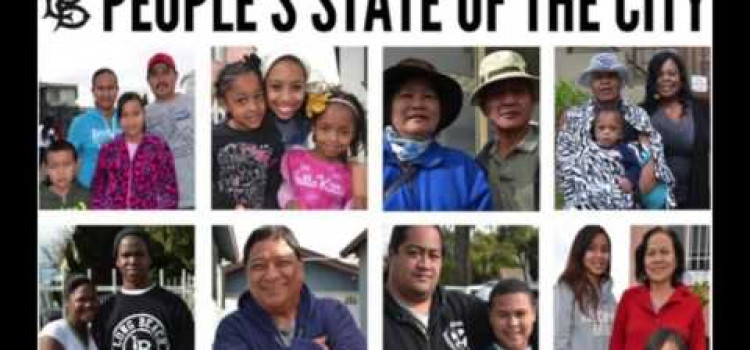

While some community leaders have showed support after Mayor Bob Foster’s optimistic 2013 State of the City, some still have reservations about how firmly he patted his own back and those of city staffers during the speech.
Focusing on finances, the mayor paraphrased Tuesday’s address in a limited 140-character Tweet: “Despite a national recovery that is achingly muted, the fiscal health of our City is improving because of significant and prudent decisions.”
Although Foster’s proposal of creating a cost-saving city command center, like the one in Rio De Janeiro, is welcomed in these tough economic times, there are still some issues the community feels can’t be solved through fiscal responsibility.
One of those issues is homelessness.
Gary Shelton of Housing Long Beach and the Greater Long Beach Interfaith Community Organization said he’s been waiting for three years for the mayor to even mention the 4,475 people that we have living in the streets of Long Beach.
“I think it’s interesting that [Foster] measured the success of the city by it’s fiscal health,” said Susana Sngiem, a 27-year-old Program Developer for The United Cambodian Community. “For our community the health and state of the city is about more than just economic development.”
Last year, community concerns about the state of the city were aired at a forum created by the Long Beach Building Healthy Communities Workgroup called the People’s State of the City. This year organizers are not yet sure if that will happen.
A recent spasm of gun violence, coupled with the lowest police numbers in more than six years and the evaporation of state redevelopment funds, has set the stage for what is quickly becoming a tense time in Central Long Beach.
Frances Harris, an advocate for disabled persons and a member of the Long Beach NAACP, said that she was okay Foster’s summary of the State of the City.
“If the city doesn’t go bankrupt, then all of the other issues that people feel need to be addressed, eventually all can be,” Harris said.
Sngiem and Harris were both in favor of technological cost-cutting strategies like the integrated city command center Foster mentioned in his address, and the LBCOP system already in use downtown. But not everyone thinks the technology funds were invested wisely.
“Cameras don’t prevent crime,” said Kazmere Duffie, a 19-year-old Long Beach Community College student and youth leader with the California Conference for Equality and Justice. “I think it’s a waste of money because we already have Neighborhood Watch and that doesn’t help fix serious situations.”
Duffie, who lives near the intersection Redondo and Anaheim streets also said that she hasn’t seen much evidence in her neighborhood of some ‘256 new businesses’ Foster’s address mentioned. The only change according to Duffie was that Ralphs had to be closed due to lack of business, and in it’s place there is now a Food4Less.
“I don’t want to say that’s ghetto, but Food4Less bad produce and cheap alcohol,” said Duffie.
Other citizen concerns included the enforcement of minor city ordinances like no-smoking areas and sidewalk-traffic.
Foster will run as a write-in candidate in the 2014 Mayoral election.
